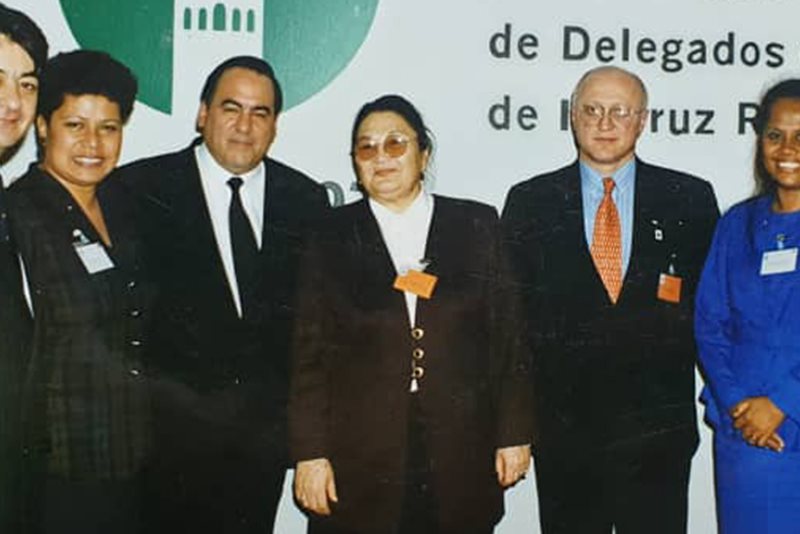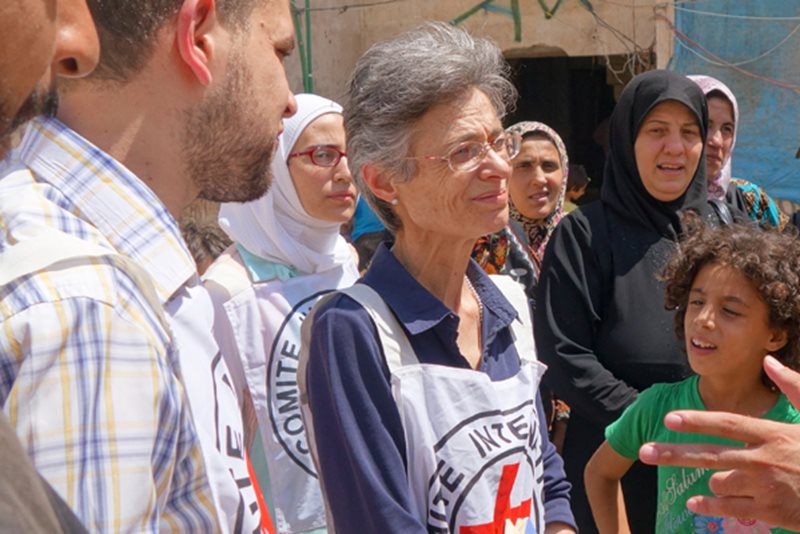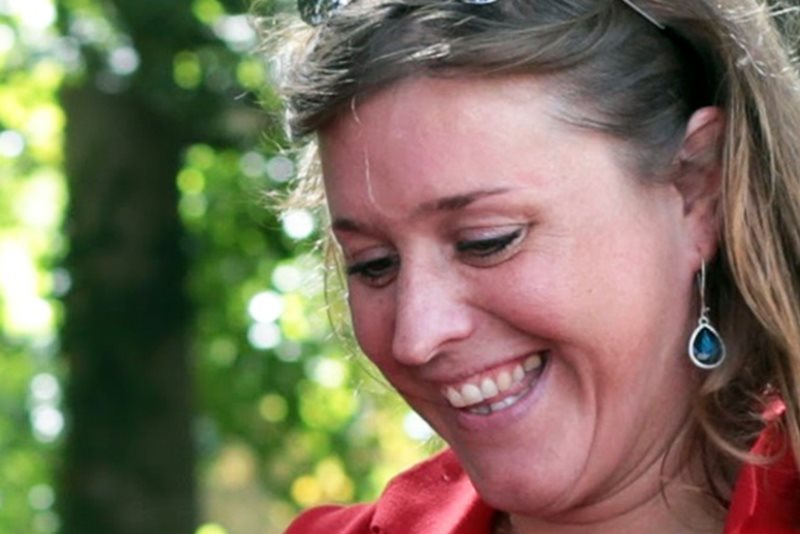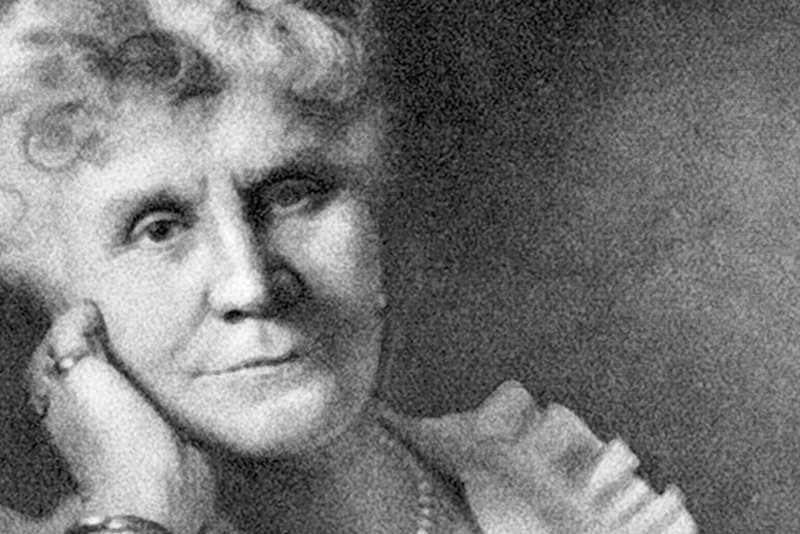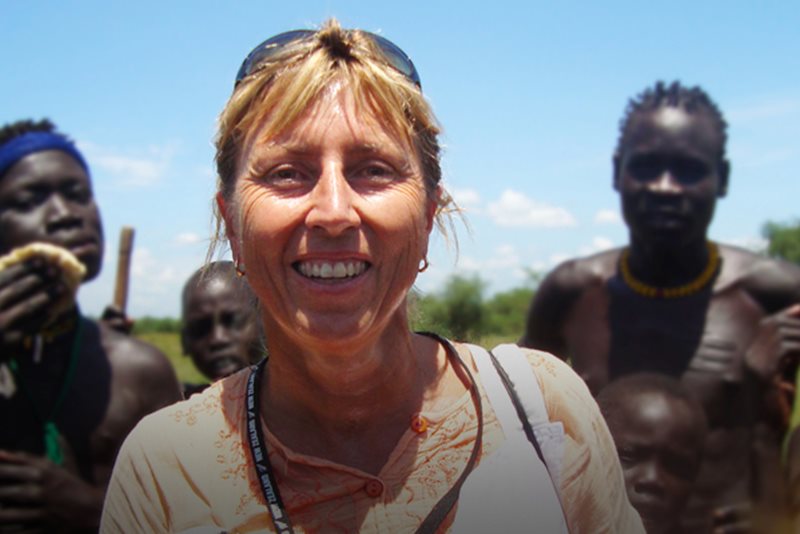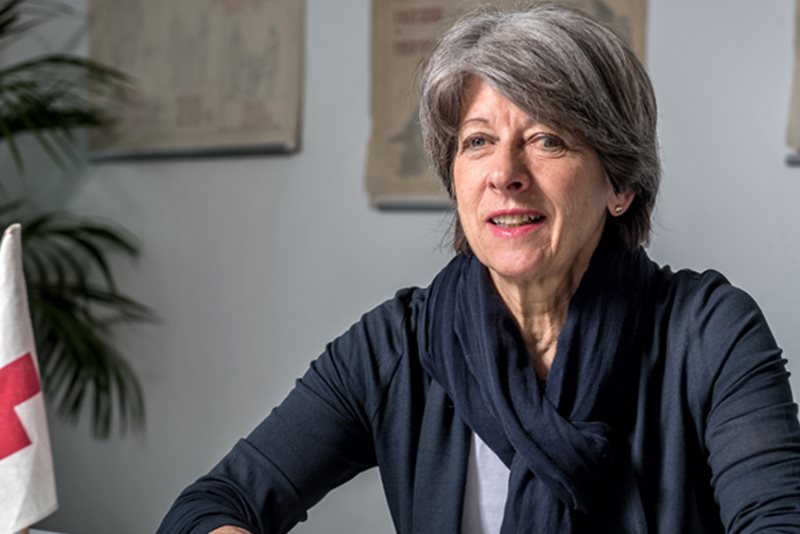

“My first experience with the Movement was with the Palestine Red Crescent Society (PRCS) in 2013 where my role was to ensure the effective delivery of Mental Health and Psycho Social Support (MHPSS) to the people of Gaza, and to provide capacity support for mental health professionals in the Palestinian Red Crescent. After that I joined the ICRC in the aftermath of the war on Gaza in 2014. There, I led a project where I conducted needs’ assessments in MHPSS to provide services to frontline respondents who were supporting internally displaced people. We reached thousands of emergency responders in Gaza. After this, I moved to Türkiye and in 2021 I began to work with the IFRC where my role has been as knowledge management officer.
I have also always wanted to work with committed and dedicated people, and I always looked up to the PRCS’s level of commitment that even in wars and with their lives at risk, they will always respond to the needs of the people who have been injured or hurt. It was such a good cause for me to join such a dedicated team and to contribute to making a positive change.
The work that I did has affected me deeply. Working for the Movement instilled within me feelings of empathy and compassion towards vulnerable people. Witnessing people suffering around the world has taught me the importance of the work that we do as humanitarians in the RCRC, and it reminds me that I always need to do my best to help these people. It is a personal fulfilment for me.
Throughout my 8 years within the Movement, I trained over 50 mental health professionals in Gaza who were suffering from burnout, but who were able to regain their motivation after our trainings. They continued our legacy by working with other NGOs and training others who needed it. I am very proud of them and proud of the work we did in supporting thousands of emergency responders. I have also had the honour to work with diverse groups in Türkiye by supporting these groups reach their needs through the largest humanitarian cash-based programme. Through this programme I was able to conduct many field visits where I was able to touch the pain of these people.”
– Naima Altarabeen, Turkey“It was not easy to gain acceptance as a woman leader and it was not easy to retain my position in leadership”
“I have learned a lot while working for the Movement. It deepened my feelings of compassion and sympathy and it improved my flexibility. I come from a patriarchal society where men are valued over women, and so for me to lead a team of mental health professionals who were mostly men posed a lot of challenges for me. I worked in a team with 50 mental health professionals out of which there were only 15 women. The hospitals and the Ministry of Health were also led by men. It was not easy to gain acceptance as a woman leader and it was not easy to retain my position in leadership. Having the flexibility to be able to deal with this and the cultural sensitivity while promoting the importance of inclusivity and gender equality were all important factors that helped me to succeed.
Throughout my career, I noticed the positive changes made to include more women in leadership positions. For example, the newly-elected IFRC President is a woman, the Head of Delegation and the Deputy Head of Delegation in Türkiye right now are both women, and also the former Head of PRC was also a woman, but she was killed in the conflict. I was very happy that she had made it to that level and that she was leading men, but unfortunately, we lost her.
As a single mother, some of the challenges I faced were when I needed to travel for work and leave my children at home. I remember once I had to travel while my youngest was still being breastfed, so I had to ask my brother to bring my baby to the office so I could nurse her before I travelled. I realise that this is a challenge that many fathers do not face. Another challenge I faced was with accessibility to certain trainings and engaging with certain stakeholders where I felt that more men than women were accepted for the trainings and welcomed to engage with these stakeholders. This is especially true in societies that are very patriarchal where most governmental entities are led by men. I have also noticed certain challenges with the men in the communities we serve who were not able to talk about their feelings, especially not with women. They did not want to cry in front of women because men are often taught that certain feelings are not acceptable for men, such as being loving or feeling sad.”
– Naima Altarabeen, Turkey“To make change happen, we need to embrace a culture that fosters equity and gender equality”
“For women to become leaders, networking opportunities are essential, but might be limited because of the traditional gender roles and unpaid work women have to do outside of working hours. Also, leadership development opportunities might be limited because the different roles we have to take on as women professionally and personally hinder our ability to access these opportunities. This is further exacerbated in patriarchal societies where women are not ever expected to become leaders and in organisations that do not help women to become leaders because of certain biases. It is very easy to label a woman as incompetent and convince others of this so that she is not able to make it to the top.
To make change happen, we need to embrace a culture that fosters equity and gender equality. It is also important to pave the way for women so that they are able to develop their capacities and leadership skills. Women should be empowered so that they are able to form a network of people who will support them in reaching their goals and in attaining positions in leadership. People should also be educated about the different gender biases so that they can fight these biases not only on organisational level, but also within their own communities. Having an environment that values inclusivity and that respects women’s skills and capabilities and encourages women to professionally grow is key if we want to make change happen.
I dream that we will one day have a just world where I can take on an active role in solving the problems we are facing globally. I aspire to be a part of a positive change and to have a positive and lasting impact on the lives of the people in the communities we serve. My aim in life is to help people in need, to eradicate gender biases, and to witness justice prevailing in our world. I hope we achieve gender equality because we women, like men, have our own capacities, and because of gender inequality some of these skills and capacities will be buried under our biases and will remain undiscovered. I dream of a world that is inclusive and that respects and values all people equally, so that we are all here together, doing good together, and building our communities together.”

“The women of Castiglione nursed and soothed the wounded soldiers, ut when the Red Cross was born, no women were in attendance. Today women are still nursing the wounded... But are they in on the decision making?”



